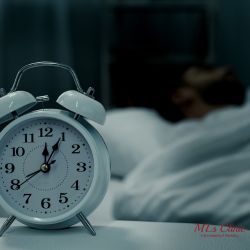Sleep Quality vs. Sleep Quantity: What is Sound Sleep for Athlete Recovery?

What Do You Refer to as Sound Sleep for Athlete Recovery ?
For athletes, sound sleep refers to 9-10 hours of restful sleep that not only allows them to feel rejuvenated but also activates the body’s repair mechanisms. Sleep plays a crucial role in recovery, enhancing performance on the field, and reducing the risk of injury. Both sleep quality and sleep quantity are essential for athletes to stay injury-free and perform at their best. Here’s what Dr. Preetesh Choudhary, one of the best orthopedic surgeons in Indore, has to say about the importance of sleep for athlete recovery.
The Science Behind Sound Sleep for Athlete Recovery
During sleep, an athlete’s body releases growth hormones that help strengthen muscles, repair tissues, and restore energy levels. Deep sleep is particularly critical for overall performance. Without adequate sleep, an athlete is at a higher risk of injury. Poor sleep schedules can leave an athlete both physically and mentally unprepared for the demands of training and competition.
Recent studies highlight the importance of a good sleep cycle for athletes. In fact, the International Olympic Committee (IOC) has acknowledged sleep as a significant contributor to athletic performance.
How Is an Athlete’s Sleep Schedule Directly Related to Performance?
An athlete’s sleep quality can directly impact their on-field performance. Here are some changes athletes might notice when they don’t get adequate rest:
- Accuracy Levels:
Lack of sleep affects focus and accuracy. For instance, a basketball player who typically makes 75% of free throws may see a drop in accuracy when sleep-deprived. - Stamina Levels:
Sleep deprivation lowers stamina, leading to earlier fatigue during physical exertion. A well-rested athlete can maintain energy longer, which is critical for endurance sports. - Muscle Fatigue:
Insufficient sleep slows muscle recovery, resulting in muscle fatigue. Fatigued muscles are more vulnerable to injuries like muscle strains or tears, as they lose their ability to absorb shock. - Reaction Time:
Lack of sleep reduces reflex speed and delays response time. For sports that require fast reactions, such as football or basketball, this can be a major disadvantage. - Coordination:
A sleep-deprived brain leads to poor coordination. Proper sleep helps improve motor coordination, making every training session more effective.
How Can an Athlete Prevent Injuries Through Good Sleep?
Athletes can reduce the risk of injury and enhance performance with these sleep-related practices:
- Sleep Environment:
The sleep environment should be free of distractions like phones and TVs, which emit blue light that interferes with circadian rhythms. A quiet, dark room promotes better sleep quality. - Quality Sleep:
Aim for 9-10 hours of high-quality sleep each night. This ensures full recovery, allowing muscles to repair and rebuild. - Avoid Stress:
Staying stress-free is crucial not just for better sleep but also for improved performance. Stress negatively impacts both the body and mind, leading to fatigue and performance anxiety. - Routine:
While a regular routine may be challenging due to tournaments and travel, creating a consistent sleep schedule is one of the best ways to maintain sleep cycle balance. Athletes should prioritize rest despite their demanding schedules. - Monitor Sleep Cycle:
Using sleep tracking tools can help athletes monitor and understand their sleep patterns, allowing them to make adjustments and optimize recovery.
Conclusion
Dr. Preetesh Choudhary, sports injury specialist in Indore and expert in orthopedic surgery, emphasizes that consistent, sound sleep is essential for athletes to stay on top of their game. A solid 9-10 hours of sleep helps athletes maintain focus, stay injury-free, recover faster, and perform at their peak. Prioritizing sleep ensures that athletes can continue to compete without setbacks, recover efficiently, and give their best performance every time.






